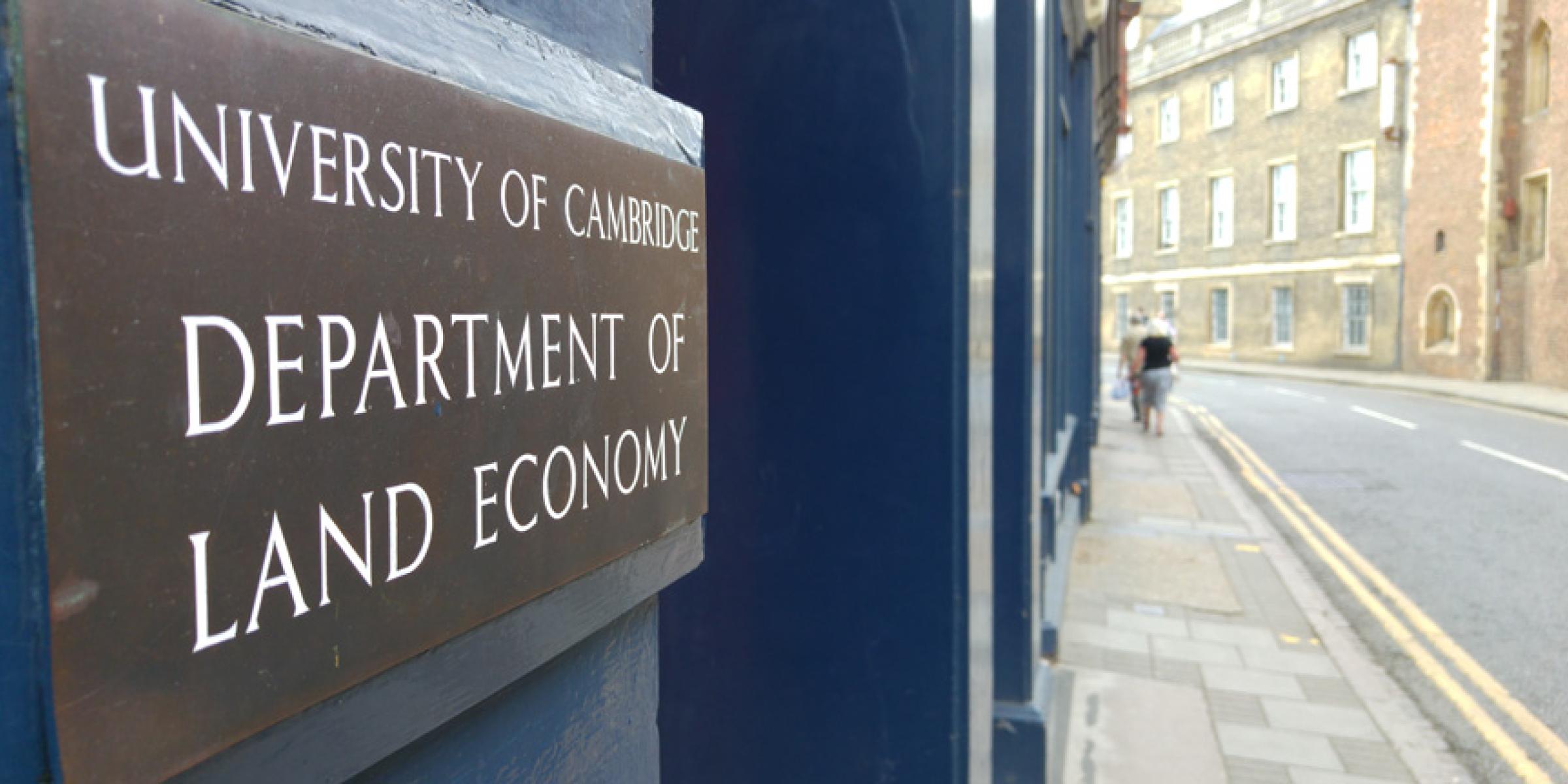Land Economy has come out on top in the latest Research Excellence Framework, according to the Times Higher Education's rankings 67% of the work in the Land Economy's joint submission with Architecture was rated as 'world leading', the best in the country in the relevant field and ahead of the Cambridge average of 62%. The average quality of Land Economy's work was also ranked number 1 by THE.
In the previous REF in 2014, Land Economy came second in terms of 'world leading' work and third in terms of average quality.
Head of Department Prof. David Howarth said:
'This is a fantastic result for the Department. It shows not only that we produce world beating, top quality research but also that we are still improving. We went into the REF as a team and we have succeeded as a team.'
Professor Anne Ferguson-Smith, Cambridge's Pro-Vice-Chancellor for Research, added:
'I would like to congratulate and thank everyone who has taken part in this year’s REF for all their hard work, which we believe has paid off in these results. What we see today is not just the excellence of Cambridge research, but also the breadth of its impact, with researchers across many disciplines bringing a fresh perspective on how we tackle major problems facing our world today.'
The REF is the system for assessing the quality of research in UK higher education institutions and is undertaken by the four UK higher education funding bodies: Research England, the Scottish Funding Council, the Higher Education Funding Council for Wales, and the Department for the Economy, Northern Ireland. The REF rated 67% of the Department's work as 'world leading' and a further 31% as 'internationally excellent'.
Our global research - quantifying the economic effects of fossil fuel stranded assets
The REF also rates the impact of academic work on the real world. 87.5% of the impact case studies in the Department's joint submission were judged to be 'world-leading', including research by members of the Department that has directly contributed to the ability of policymakers, regulators, major investment companies and international corporations to understand the macroeconomic implications and financial risks arising from the transition to a low-carbon economy.
The research provides a quantitative estimate of the cost of ‘stranded assets’. These are resources that abruptly shift from high to low value as a result of an external change, for example a decline in the demand for fossil fuel stocks in a low-carbon economy, a situation sometimes referred to as a ‘bursting of the carbon bubble’.
The research was expressly relied on by the Bank of England when it took the lead in demanding disclosure by financial intermediaries of climate-related risks.
It was also specifically relied on in a major class action lawsuit brought by 17,200 claimants and 7 non-governmental organisations against Royal Dutch Shell, resulting in ordering an oil company, for the first time in history, to cut its emissions by 45% within 10 years.
The research has also featured prominently in influential policy reports, such as the Intergovernmental Panel on Climate Change’s 2018 Special Report on 1.5°C, the 2018 Report from the Global Commission on the Economy and Climate and the Banque de France’s 'Green Swan' report.
It has attracted substantial attention and specific requests for information from senior political and governmental actors, including Canadian Prime Minister Justin Trudeau, the Canadian Energy Ministry, the US Senate, from financial regulators, and from investment funds and energy companies.
The research has also influenced the UK government’s engagement strategy with Brazil, China and India, leading to the government supporting an extension of the research on the modelling of energy transitions in Brazil, China, India, the EU and the UK.

